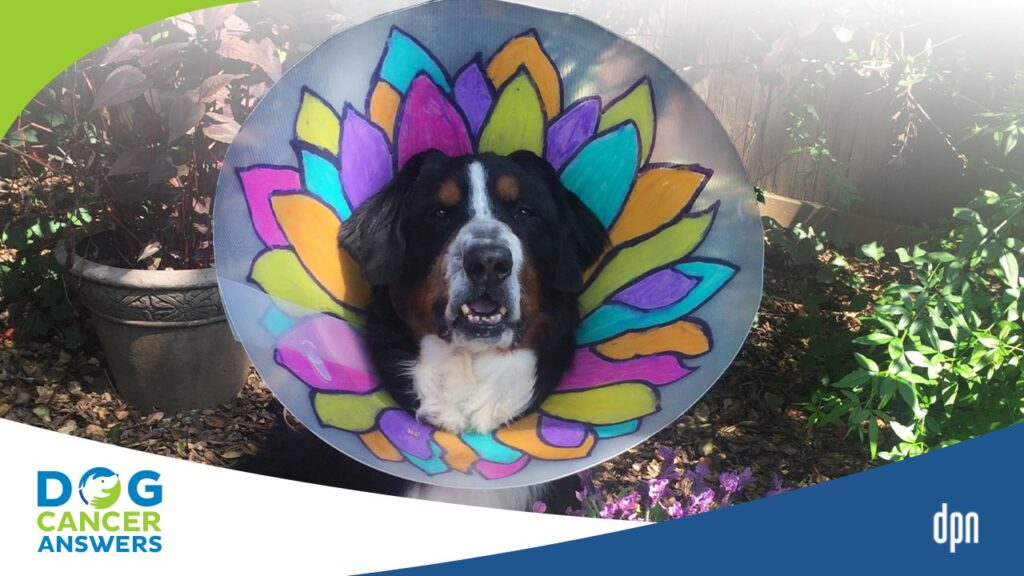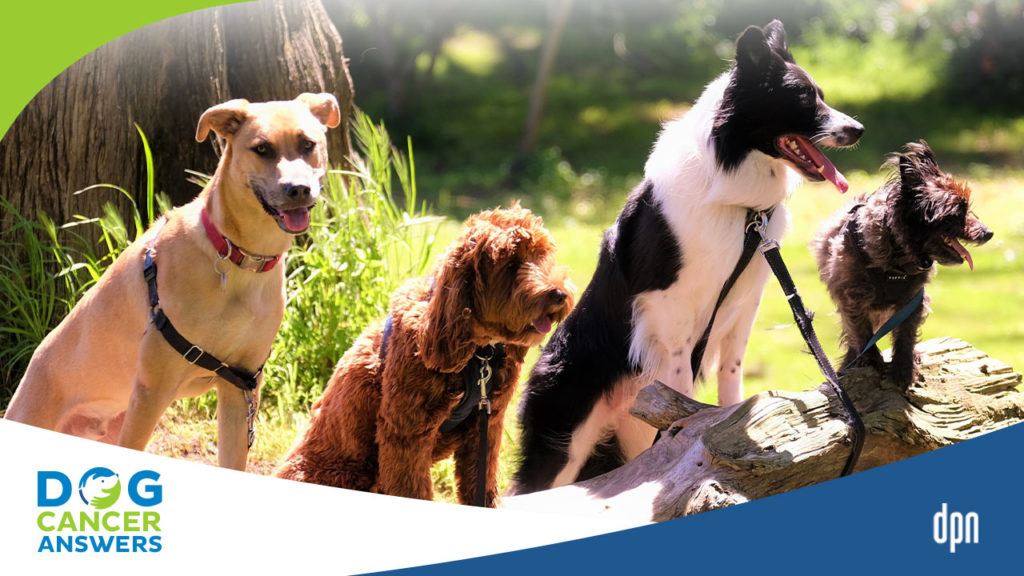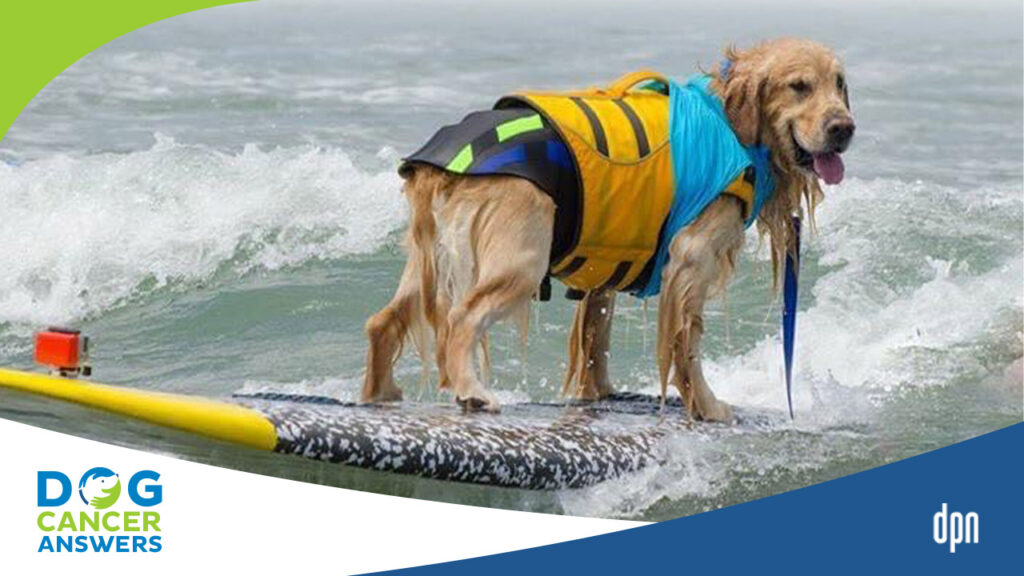EPISODE 137 | RELEASED October 18, 2021
How to Choose a Dog Breeder | Dr. Jerry Klein, DVM Deep Dive
Any dog, mixed breed or purebred, can have genetic health problems. Dr. Jerry Klein offers advice on researching breeds … and tells us how to pick a responsible breeder.
SHOW NOTES
Dr. Jerry Klein, the Chief Veterinary Officer of the American Kennel Club, joins us today to discuss things to look for when choosing a breeder to increase the odds of having a healthy puppy. All dogs can carry genes for health problems, so health testing is critical for dogs of any breed or mix that are being bred.
If seeking a purebred dog, visit the AKC “parent club” website for that breed to learn about common health concerns in the breed and find resources to connect you to a breeder or a breed rescue group. The Canine Health Information Center is another resource to learn about genetic testing recommended for a particular breed.
Whether the puppies will be purebred or not or show quality or not, anyone breeding a litter should be making an effort to produce healthy puppies and ensure that they are going to good homes. No one can guarantee that a puppy will not get cancer, but there are things you can do to decrease risk. Things to look for include:
- Health testing results from the Orthopedic Foundation for Animals (OFA), Penn HIP, and/or Embark – these are not just for purebreds!
- Asking questions about you that show their dedication to the breed and their puppies
- Referring to another breeder if they don’t have a puppy available
- Willing to let you meet the parents and relatives
- Clean property and home or facility
- Records on longevity and health
- Stays in touch with puppy owners
- Transparency about health issues
- Parents at least 2 years old (physically mature and minimum age for many health tests)
- Good nutrition for puppies
- Parasite prevention
- Socialization for puppies
- Involved with their breed(s) for a while
In case you have wondered, the AKC is primarily a registry – they track registered dogs and hold dog shows. It is a “club of clubs.” The AKC does not control specifics of each breed – that is up to the parent or national clubs, each made up of people passionate about and dedicated to their breed.
Links Mentioned in Today’s Show:
- American Kennel Club
- AKC Breeder of Merit Program
- Canine Health Foundation
- Canine Health Information Center
- Embark
- Orthopedic Foundation for Animals
- PennHIP
Related Links:
[00:00:00] >> James Jacobson: Today’s show is sponsored by the Dog Cancer Survival Guide, the best-selling book that helps you help your dog with cancer. Join the companion private support group at DogCancerSupport.com and get the email newsletter at DogCancerNews.com.
[00:00:19] >> Dr. Jerry Klein: I recommend that they familiarize themselves with the breed, and the best place to go is at that breed’s parent club website. So the Golden Retriever Club of America has a fabulous website that has information about the history, information about breeders, information about health concerns. And within that, uh, there are breeders that do the recommended health checks as recommended by that breed’s parent club. And AKC designates those breeders, honors them, by giving them the recognition to call Breeders of Merit.
[00:00:50] >> Announcer: Welcome to Dog Cancer Answers, where we help you help your dog with cancer. Here’s your host, James Jacobson.
[00:00:58] >> James Jacobson: Hello friend. One thing that all dog lovers have in common is that they do not want their beloved dogs to get cancer. Not ever. And if you’re listening to me now, you have probably already been through that heartbreak at least once, and you hope that maybe there is a way that you can avoid it in the next dog that you get. Well, today’s guest is Dr. Jerry Klein, a long time veterinarian and a dog lover who also serves as the Chief Veterinary Officer of the American Kennel Club. While none of us has a crystal ball, Dr. Klein is here to tell us how to choose a breeder who is making every effort to produce the healthiest puppies possible and to avoid genetic health conditions that could cause problems down the road. Choosing wisely, no matter what breed or mix you’re interested in, can help to minimize the risk that your new pup will fall victim to a genetic health problem. Dr. Klein, thank you so much for being with us today.
[00:02:05] >> Dr. Jerry Klein: Thank you for having me.
[00:02:07] >> James Jacobson: So you have been a veterinarian for a few years and you’ve been at the AKC for seven.
Do you want to share how long you’ve been a practicing veterinarian?
[00:02:17] >> Dr. Jerry Klein: Uh, I graduated from vet school in 1979 and moved to Chicago shortly afterwards and started practicing emergency medicine, which I thought was going to be a one-year stint and became about a 35 year stint.
[00:02:31] >> James Jacobson: And what brought you to the American Kennel Club?
[00:02:35] >> Dr. Jerry Klein: When I was a kid, I came from a non doggy family and I basically coerced them into getting me a dog. And I would try to do all things dog, read about things in the library. And uh, I went to a dog show. I found that, and I realized that I was infatuated with that. And I learned to show my own dog, and then I aligned myself with people that bred them and handled them.
And that got me, it helped me to get a position as a veterinarian. And then eventually I became a judge. So the fact that I kind of wore all hats, uh I owned purebred dogs, I showed my dogs, I bred certain litters after a period of time of being involved for a while – I didn’t jump into it, I judge, and then I’m also a veterinarian, they felt that I was a good fit to be a liaison, so to speak, between the general public, my fellow professionals, veterinarians and vet techs, and the purebred dog fanciers.
[00:03:26] >> James Jacobson: Now the AKC has a deep, long history. When did the AKC start?
[00:03:29] >> Dr. Jerry Klein: I think it’s like 138 years old and it started out primarily as a registry body.
[00:03:35] >> James Jacobson: So the role of having an AKC vet – are there more than one, or are you it?
[00:03:40] >> Dr. Jerry Klein: I’m it. And amazingly I’m the first. And I suspect that won’t be the last, but I’m very honored to be the first and to hold this position because it’s a form of outreach. I mean, I, I felt when I was doing emergency medicine, I really kind of helped lives at every shift, but this position is different because it’s far reaching.
It goes to not just a local thing, but national, even international readership and appeal. And it’s uh interesting and challenging as well.
[00:04:07] >> James Jacobson: Why did the AKC open this up? What is a veterinarian at the American Kennel Club do?
[00:04:14] >> Dr. Jerry Klein: Basically a spokesperson for all things health related, any questions that may arise, whether it’s things happening in the moment – like for example, when the canine influenza appeared in this country, I happened to be practicing in Chicago, which was ground zero, but having implemented, kind of regulations and recommendations for show giving clubs, you know, and, uh, just, it’s very similar to, I mean when you think about it, what COVID happened, uh, in human medicine as well.
It had to- information to get out to the public, to try to prevent the spread of a certain disease. So this is just one aspect that, but also for information or misinformation about health and management, and trying to get awareness for the best ownership and handling of dogs.
[00:04:56] >> James Jacobson: Now obviously our listeners are very interested in dogs with cancer, and a lot of them are concerned that their dog may have cancer as a result of, you know, of genetics.
What are some of the things that you and the AKC position-wise take as it relates to cancer?
[00:05:21] >> Dr. Jerry Klein: Well, I think something that has to be important to be known about the American Kennel Club is that it’s a club of clubs. It’s uh comprised of many clubs, all-breed clubs, uh, let’s say the Sacramento Kennel Club, but also, and very importantly, parent breed clubs.
And by we talk about a parent breed club, we’re talking about that breed’s national breed club. So if I’m talking about Siberian Huskies, the Siberian Husky Club of America. They’re the ones that write the standard for that breed, not the American Kennel Club. But I think what’s important is that many people sometimes feel that the American Kennel Club are the ones that write the breed standards and do the actual health test recommendations.
In fact, they do not. That is all done by the individual breed parent clubs that are regulated under the umbrella of the American Kennel Club.
[00:06:11] >> James Jacobson: Got it. Okay. So now that we kind of understand the politics of it, as it relates to cancer, what are your thoughts in terms of genetics and breed standards and all that in terms of the proclivity of some breeds, you know, to have more cancer than others? Say, Golden Retrievers or Boxers.
[00:06:28] >> Dr. Jerry Klein: Of course. And I think a couple of things goes into that. Uh, when people decide to get a dog, one thing that I discourage is impulse buying or impulse adopting, which unfortunately in the last year we saw a great deal of, because people had a knee-jerk reaction to get a dog or cat because they need a loneliness or companionship. And they sometimes get a dog and this year, we found many dogs and cats either, that either people didn’t know what you were getting, or was a bit of a concern because they may want to relinquish them, which we’d never want. We want in AKC something called a "good match," which is when people do their research and understand what a breed entails, what it was bred to do, so it acts in a certain way, it’s not a surprise. So the chance for a lifelong relationship is improved, rather than concerns and either return to the breeder or, worse, relinquish to a shelter. So being informed about a breed means knowing things about its breed health. And when someone asks me, I want to get, let’s say a Golden Retriever, I recommend that they familiarize themselves with the breed, and the best place to go is at that breed’s parent club website. So the Golden Retriever Club of America has a fabulous website that has information about the history, information about breeders, information about health concerns. And within that, there are breeders that do the recommended health checks as recommended by that breed’s parent club.
AndAKC designates those breeders, honors them, by giving them the recognition of, called Breeders of Merit. And these are breeders that have been involved in a particular breed for a certain period of time. In other words, they’re not a fly by night breeder, not having a litter this year and getting getting out of the breed the next year.
Sometimes they’ve been in it for generations. And then they are aware of the breed health issues. They’d recommend the required health tests, and they publish it, the results, if possible, in an open transparency area called the OFA, the Orthopedic Foundation of America, which is a transparent information center where you can look up dogs, can look up by the breed, and that OFA also lists breed concerns by breed as well. So I would urge people to A) look at the parent club website, and also go to the OFA and look up an individual breed and its health concerns and whatever’s available for health testing.
[00:08:38] >> James Jacobson: Is there only one officially sanctioned website or club for each breed?
And like you say, you know, you go to the Golden Retrievers Club of America. So there’s just that one resource if you’re interested in a Golden?
[00:08:50] >> Dr. Jerry Klein: Well, Golden Retrievers have many, many local breed clubs, but the parent club is the one that organized all of them. They are the ones that formed the breed standard, they are the ones who did the regulation of that breed, and the members of that breed are the ones that may recognize any health issues that are occurring, often with work with your veterinarian. They talk amongst each other, and if they find that there’s a health concern, they oftentimes fund research through the Canine Health Foundation, for example, to try to either figure out if there’s a genetic basis for it or forms of treatment. Canine Health Foundation is an affiliate of the American Kennel Club, and it’s the largest not-for-profit organization strictly dedicated to canine health and research. So much has been done, over like $60 million, towards canine health and research.
So it’s been a great asset for us to know about what we know about canine health. And not just for purebred dogs, but for all dogs, because they do studies like in epilepsy, cardiac disease, cancers. So it doesn’t affect just a Golden Retriever, but also dogs that are getting that kind of disease.
[00:09:50] >> James Jacobson: Let’s tease out that OFA.
That is a single repository that all of these, the Golden Retriever Club of America and the, and its corollary for the different breeds, connect with to contain medical information?
[00:10:04] >> Dr. Jerry Klein: It is, it’s a transparent database. And not every single breed has it, but I think over like 130 breeds do have the ability to form, in conjunction with Canine Health Foundation, something called having a CHIC number, a Canine Health Information Center number.
These are dogs that have passed all the recommended health checks as recommended by their breed’s parent club. So as an owner, a prospective owner, and I’m going to a breeder, hopefully a responsible Breeder of Merit, I would ask the breeder: do you have documentation that your dog, the sire or the dam, has been checked for these various issues?
What are the problems in the breed? And what you’re looking for is transparency from the breeder.
[00:10:44] >> James Jacobson: Okay. And then, when you say it is down to the dog level, so literally like, you can basically look up an animal that way?
[00:10:53] >> Dr. Jerry Klein: My dog, for example, by name, is listed with his birth date, his sex, his sire, his dam, their health results, their- that dog’s sire and dam… you can go back generations in way of ascertaining, for example, it started out as a hip regulation against hip dysplasia.
[00:11:09] >> James Jacobson: Which is the orthopedic, the O part of the – ’cause I was like, why is this about orthopedic?
[00:11:13] >> Dr. Jerry Klein: That’s where the O started. It started with hips. It moved to elbows, and it does things like progressive retinal atrophy, cardiomyopathy…
so whatever tests can be done, as recommended by that breed’s, that can be tested. That’s a listing of dogs that have passed those health checks. Or have not.
[00:11:30] >> James Jacobson: So your dog is listed, is that because you are a veterinarian, or can anyone list their dog?
[00:11:34] >> Dr. Jerry Klein: Oh no. Anyone can and should, if they’re going to be breeding dogs.
[00:11:39] >> James Jacobson: Okay. And so by having this data on the mother and the father, it will help a person make a better-informed decision about the genetics and the proclivity for issues.
[00:11:53] >> Dr. Jerry Klein: Yes, but I think what it really does, if I was a novice person or was guiding someone to get a dog, it tells me that the person I’m getting it from has done their due diligence to be committed to that breed, to have a certain responsibility. Because there’s no guarantees in life. And anyone that says that, that’s a red flag. But what it’s telling me is the person that I’m going to is someone that cares, and understands that things can happen, but I’m doing the best job I can to minimalize the possibilities of problems for you, for me, and for anyone else that gets one of my dogs.
[00:12:29] >> James Jacobson: That is really good to know. You know, let’s take a short break right here, but when we return, let’s talk about red flags to look for when choosing a puppy or a breeder. We’ll be right back.
And we are back with Dr. Klein. Well, let’s talk a little bit about those "guarantees" and those red flags. What are some things that a person who’s interested in getting a purebred should look out for, in terms of really being able to suss out if this is a reputable breeder, and more directly, if this puppy is the right one?
[00:13:06] >> Dr. Jerry Klein: Well, after you’ve done your homework to decide that this is the breed for you and have decided that maybe that is a person that you might want to inquire about, depending on the popularity of the breed, first off, I would see is, what kind of questions is the breeder asking me? Because, am I going to be a qualified owner?
When I get inquiries for one of my puppies, I stay up late at night thinking about, losing sleep: do, am I going to sell one of my puppies to this person? And if I don’t feel, I may ask, where do you live? Do you have a fenced in yard? What kind of time do you have? So the kind of questions that person is asking the prospective owner tells me an awful lot about the breeder.
[00:13:45] >> James Jacobson: So if they basically are trying to disqualify you as good enough to have one of their puppies, they may actually be a better breeder.
[00:13:52] >> Dr. Jerry Klein: In a way. It’s, it’s part of my family, of course. And someone that, you know, oftentimes someone says, I want a, uh, silver Poodle, you know, for my son’s birthday next week. And guess what?
They may not have one. Because it shouldn’t be just merchandise. I’m not saying it’s not going to be available, but someone that doesn’t have a dog at that very moment is not a bad thing. Oftentimes, it’s a very good thing. And oftentimes a responsible breeder, if they don’t have it, will either put you on the list for a litter they have coming up, and you have to be able to wait, or they’ll refer you to another responsible breeder. But part of the responsibility lies on the prospective purchaser, because they oftentimes in this society, want something tomorrow, in a color, or maybe yesterday, and I hate to wait 24 hours. And so some of the problem has to be put on both hands.
It’s not just the breeder. In fact, oftentimes it’s the, the demand and the need to feel like it should be dealt with as merchandise, which it certainly it should not.
[00:14:47] >> James Jacobson: And getting a puppy is not as simple as going online and ordering something on Amazon.
[00:14:51] >> Dr. Jerry Klein: In some ways it’s become like that. The question you’re asked is how do I tell a responsible breeder?
That’s what I would tell someone.
[00:14:58] >> James Jacobson: What are some other red flags, or things that would make you go, huh, this may not be the right breeder?
[00:15:05] >> Dr. Jerry Klein: Depending on your, your ability to go to the breeder, you should at least ask, can I go and see the litter? Can I go see the dam? Now, whether you can physically or not is up to you.
You’re – some people will fly, I’ve had people fly from Seattle to come to see me to get a dog. But the answer should always be, of course. You can’t just drop in, but with an appointment you can stop by. The answer should be, of course you can within the limits of my schedule. But if you are not allowed, or they’re not, you’re not available to see the dam or the litter of puppies, for me, that would be a red flag.
[00:15:41] >> James Jacobson: That is really good advice, because firsthand I have done that and I’ve flown places, not that far, from one island to another, multiple times to make sure that it was the right situation. So when you go and look at the breeder, are there things that are giant red flags or not? Like, is someone who’s doing this out of their home, in their backyard, does that make them a backyard puppy mill?
[00:16:07] >> Dr. Jerry Klein: Well, I’ve taken great offense at being called a backyard breeder because I have a beautiful backyard that my husband tends to beautifully, and I have a litter every perhaps four or five years. And so if someone calls me a backyard breeder, I am, take great pride in it.
I, I’m not denigrated. But I take offense if someone thinks it’s an offensive term. I’m a responsible hobby breeder. And my backyard is lovely. I invite you to it if you’re ever in Chicago.
[00:16:34] >> James Jacobson: Okay. I will do it, but I’m, not in the middle of the winter.
[00:16:36] >> Dr. Jerry Klein: I think the quality of the yard, or the location, and the animal husbandry – they don’t have to have cushions, but the animals should be kept in good condition, clean, there should be good records. There should be great openness and transparency, and information. A good breeder wants a client to have a dog, uh, protect them for life. They’re willing to answer questions after that sale is done. They’re willing to if – either there is a contract, if something doesn’t go right, they want to know about it. They’re willing to have first right of refusal and to be able to get the dog back. I don’t want my dog, if I sold it to you, and you decided after like six months you don’t like that dog, to go and sell it to someone else. I want you to tell me about it, and I’ll see if I can find a home for that dog or get it back to me.
That’s how I deal with it.
[00:17:19] >> James Jacobson: Because you feel that you have a fiduciary, and a responsibility to take care of this puppy.
[00:17:25] >> Dr. Jerry Klein: This "hobby" is an extension of my life. I got into breeding Afghan Hounds, it’s determined where I live, the kind of car I drive, every aspects of my life. So when I am breeding a litter of puppies, and I put as much time and effort to the entire litter – I have no idea if it could be one puppy born or seven. I may only keep one in that litter, but the six other ones have to go to wonderful homes. And I, the same kind of care and commitment and money goes into the breeding and formulation of that of that litter. And I want every single one of them – for me, my favorite time is a year later at, during Christmas time, that I got a Christmas card from a family with the dog and the kids and everything else. They can’t always be perfect, but that’s what you strive for.
[00:18:05] >> James Jacobson: And it can be an investment. The searching process, say you decide on, you want an Afghan, or a Golden Retriever, or a Maltese – and you’re looking for the right breeder, my thinking is that patience is the most important thing and that you’re not going to find it perfect the first time, and that you should invest the time and the money associated with waiting.
[00:18:30] >> Dr. Jerry Klein: Well, I think the waiting is something that in our society today is an unfortunate thing that we don’t have a lot of, we’re impatient.
And I mentioned before impulse, and impulse buying, we tend to think of everything needing it now, instant gratification. Now it may be the first person you inquire may happen to have that dog that you’re looking for. I’m not trying to deny that that could happen. Uh, but, if you have the luxury of not, but try to do due diligence, and try to put some effort and realize that it might not be an instant kind of a thing.
[00:18:58] >> James Jacobson: So we are really obviously talking exclusively on this episode about purebreds, but the entire world has become a lot easier to find whatever kind of dog you want, whether you are adopting a dog from a shelter, or trying to find the perfect next show dog.
[00:19:18] >> Dr. Jerry Klein: Or pet.
[00:19:19] >> James Jacobson: Or pet.
[00:19:19] >> Dr. Jerry Klein: Or pets.
[00:19:20] >> James Jacobson: Yeah, absolutely. I mean, my dogs are pure pet grade, but they’re, but they’re amazing.
[00:19:25] >> Dr. Jerry Klein: As are mine! They can be both.
[00:19:28] >> James Jacobson: There’s this whole new cosmology of websites designed to help you find and shop. And they tend to put a lot of awfully cute pictures of puppies on there. And I understand that sometimes what they’re putting up is not exactly what is available.
[00:19:49] >> Dr. Jerry Klein: Well, I can’t speak for that because that’s not my world necessarily.
I’ve had to take care of some of those dogs that have been acquired. And some dogs are just wonderful, and some dogs unfortunately may have issues, whether it’s temperament and/or health. But what it is, is depending where these dogs were obtained, or adopted, we don’t have as much of a chance of predictability that you may have when you get a purebred dog from a responsible breeder.
[00:20:14] >> James Jacobson: Well, let’s go through some of the questions that you should be asking a breeder before actually making the commitment and purchasing a puppy from them.
[00:20:24] >> Dr. Jerry Klein: Well, as I mentioned, OFA, let’s say the most basics, especially a medium to large breed, they started out as a hip registry. And one of the requisites, for getting your dog pass for, let’s say hip dysplasia, is having your dog x-rayed and being free of hip dysplasia.
And the requisite, the dog has to be at least two years of age. And the reason for that is because some dogs can become dysplastic over a period of time. So they feel that by two years of age, any signs of hip laxity would show up in a radiograph by about two years of age. Uh, certainly things can worsen, but the biggest concern, the reason hip dysplasia reared its ugly head is because there were dysplastic and semi crippled dogs at a year, year and a half of age.
And we knew this because of the military, did their first kind of testing. So I’m always a little concerned when people breed dogs that are less than two years of age, not just because they can’t register and do their hips, but I find as a veterinarian, things start to show up in the first year or two of their life. Uh, not, not everything – let’s say epilepsy, a dog may seizure at any point in their life, idiopathic epilepsy, and up to even six years of age, but it is more likely to see it up to the first, sec, two years of age. Now, as a responsible breeder, if I keep a dog and it has a seizure, I’m not going to incorporate that into my breeding program. Now there’s no genetic test to really screen, uh, for idiopathic epilepsy.
You’re going on the goodness and the goodwill of the breeder. But I know people, let’s say for a, say with a Standard Poodle, they had a beautiful dog and it had a seizure at a year and a half of age. And they eventually neutered it and put it in a wonderful pet home. It’s a beautiful dog and they were going to use it at stud, and they, of course they opted not to. So breeding a dog too young, not having adequate health checks as recommended by their breed parent club, not being able to have access to see the litter or the dam if I request, those are all red flags.
[00:22:08] >> James Jacobson: Now you mentioned OFA, are there other websites or other organizations that track this?
I know there’s Embark and um-
[00:22:16] >> Dr. Jerry Klein: Embark is a genetic testing of certain kinds of things. It’s not a guarantee, it’s just a predisposition that a breed may have certain kinds of problems, but as an open database of, uh, tests that have been done and the results, that’s the major one that incorporates everything else.
Penn Vet does hips, but OFA does things besides hips. And it works in conjunction with Canine Health Foundation.
[00:22:36] >> James Jacobson: Okay. And so the Canine Health Foundation is, again, sort of an arm of the American Kennel Club?
[00:22:41] >> Dr. Jerry Klein: It’s an affiliate. Correct.
[00:22:42] >> James Jacobson: And you said that they provide funding for universities to do research for various ailments for dogs.
[00:22:51] >> Dr. Jerry Klein: Conditions, ailments, but they also do research against tick-borne disease and other things that may be of concern to the health of dogs.
[00:23:00] >> James Jacobson: We’re going to take a break right here, but when we come back, I want to talk specifically about breeds and cancer. We are talking with Dr. Klein from the American Kennel Club, we’ll be right back.
And we are back. So if a prospective owner is researching dog breeds, where would they look to find accurate information about genetic health problems in a particular breed?
[00:23:26] >> Dr. Jerry Klein: Uh, to understand the breed, you’d have to go to the breed’s parent club website to understand what the current concerns of that breed’s members are of their own chosen breed.
[00:23:37] >> James Jacobson: So if you’re looking at, I don’t know, Golden Retrievers, because Goldens tend to have a really high level of cancer, or Boxers, are there particular questions that you’d want to be looking at to make sure that, while I’ve already committed, I want a Golden Retriever, I understand the risks, but it is less likely that this dog is going to develop cancer?
[00:24:00] >> Dr. Jerry Klein: Well, there are some breeds where their parent club recommends uh cardiac testing at, let’s say a year of age, or some breeds not till two years of age, or in some breeds every year. Or for eye, for cataracts with an ophthalmologist. So depending on the breed, depending on the condition, and depending on what can be tested, uh, those are the things that might be found within that breed.
[00:24:23] >> James Jacobson: I mean, I know that the Morris Animal Foundation has been working on this really big study on Golden Retrievers and specifically cancer. Is there any way that you, as someone who wants a Golden Retriever, can have access to that to kind of connect that, and again, reduce the odds of getting a Golden that develops cancer?
[00:24:43] >> Dr. Jerry Klein: Well, one of the problems with Goldens and cancer was that a prolific sire of 25, 30 years ago became, uh, used enough to be kind of wide spread through the gene pool. So it became difficult-
[00:24:57] >> James Jacobson: Wait, say this again, this is news I’ve never heard.
[00:25:00] >> Dr. Jerry Klein: Well, I think the reason something becomes in a breed is because a certain dog may be used at stud, or used as a brood bitch, and problems can happen. And let’s face it, that can happen, and I think hemangiosarcoma was probably due to a dog, or a certain line of dogs that had this condition. Just like hip dysplasia that happens in certain lines, certain breeds of dogs.
[00:25:19] >> James Jacobson: So it literally can be traced to this one-
[00:25:22] >> Dr. Jerry Klein: I don’t know if it’s that one dog, but that dog was a winner that ended up having it, I think, and then some, uh, suspect that that dog helped the condition become fairly widespread within the breed. Right now it’s so diverse that you can’t just pinpoint it. It’d be like trying to do that with people with a certain condition. So what you’re trying to do, the kind of questions that I would ask is, how old is the mother and the father, are the grandparents still alive?
What did they die of? I mean, there’s nothing wrong with asking those questions, and I think it would be very important for me to want it, if I want a Golden Retriever, I would ask. You know, anyone trying to get an Afghan Hound from me, I expect you to ask intelligent questions about where are my dogs, how long do they live?
I can tell you exactly. Now my line of dogs live to be 12 to 14 years of age. They always have, uh, and I expect that. They don’t ever live past that time, they’re Afghan Hounds. They were raised from generations in Afghanistan, there was no veterinarians in Afghanistan, so it was survival of the fittest. They live a long life, when they get old, they get sick and they die. And to be truthful, that’s it, they don’t have things like Cushing’s or epilepsy. So every breed has certain conditions. But what I find interesting is the more ancient breeds have less health issues than the ones that were developed in the last 150 years.
[00:26:34] >> James Jacobson: Why do you suppose that is? A richer genetic pool?
[00:26:37] >> Dr. Jerry Klein: Well, because of, those breeds were survival of the fittest. Again, in Afghanistan, Egypt, Saudi Arabia, and in the Congo, there were not veterinarians taking care of these dogs. So they lived and, uh, the most fit are the ones that live to tell.
[00:26:51] >> James Jacobson: Shout out to my Maltese again. Old breed, right? What precautions should a reader be taking to protect their puppies’ health?
[00:27:01] >> Dr. Jerry Klein: Well, always the best nutrition possible that’s age appropriate and best for that type of breed, sanitary conditions, parasite prevention whether it’s intestinal parasites, worms, or coccidial or protozoal parasites, making sure the parents are on proper management. So health, nutrition, and then also socialization at the proper time.
So they’re not like locked away, they have enough human interaction at the proper time so these dogs are well socialized. And that’s the advantage of getting a dog from a responsible breeder versus a dog they’re getting from a shelter, who may be actually great health and a great dog and wonderfully social like – you just don’t know. And again, there’s no guarantees, but you’re just trying to minimize that risk. So when we are proponents of a pure bred dog it’s for their predictability factor. And if you’re going to get a purebred dog you try to get one from a responsible breeder, because unfortunately in this day and age, we can’t label everyone under that same kind of term, I think.
[00:27:56] >> James Jacobson: Well, let’s talk a little bit about that, and this day and age of COVID. Obviously when the pandemic struck, a lot of people started staying home and they wanted to add a dog to the family. As they added those dogs, you know, we hear stories about shelters basically being emptied. Was there a greater demand on purebred breeders?
[00:28:18] >> Dr. Jerry Klein: There may have been, but purebred breeders, the good ones, didn’t start breeding left and right, because they had their own agenda. Now, other ones that saw it as a marketplace, I think that they saw a need to be filled, and you know, like any vacuum, uh, things started to happen. So, I think that those breeders that were doing what they were doing before, they didn’t amp up their breeding schedule just because of COVID, in fact many people curtailed it, but other people chose to supply this need. And I think something interesting about the shelters being emptied, initially, like in February and March, there was a concern that a lot of people have had, from what I read, that they were going to contract COVID from their pets, dogs or cats.
And there was a concern, because it was going on in other countries, that people were going to relinquish their dogs and cats and were getting rid of them. And so the shelters were preparing for an onslaught of getting dogs and cats into shelters. So what they did is they got rid of as many as they could into foster homes to make way for the potentiality that people were going to start to relinquish their own dogs and cats. As it turned out, it didn’t happen. Thank God. People did not feel the need to get rid of their own dogs and cats because we did an incredible amount of good information that you can not contract it from your dog or cat. So they weren’t willing to get rid of them. But on the other hand, they decided to get dogs and cats, and that was great for the shelters because they were able to find homes for a lot of the dogs and cats all over.
[00:29:43] >> James Jacobson: I recall that nano moment when people were saying it was gonna, I think there was something, a dog in Hong Kong had eaten a tissue and maybe they thought maybe that was connected with the owner getting COVID or something like that, but-
[00:29:54] >> Dr. Jerry Klein: It was a scary time, a lot of questions, and we didn’t have a lot of answers.
And I think a lot of people, everyone – veterinarians, shelter workers, healthcare workers – didn’t know where this was leading, and they were trying to do the best thing possible to prevent some kind of a panic response.
[00:30:09] >> James Jacobson: So would that be a fair question to ask a breeder? Like, have you been selling more puppies now that, uh, that it’s COVID time?
[00:30:16] >> Dr. Jerry Klein: Um, you could ask a breeder. I’m not sure how much importance I would place on the answer, depending how they answer the question. I give everyone the benefit of the doubt until proven or saying something that strikes me off. And let’s face it, not everyone takes care of dogs the way I do, but it doesn’t necessarily make it wrong. But I always look at it with some form of open mind to make sure it’s done properly.
[00:30:38] >> James Jacobson: So if one were to try to be Colombo and try to really, you know, make sure that the questions are smart and uh, they are leading enough to get a breeder to reveal the true nature of their, of their breeding, what are some of the things that you would do, or some of the more tough questions that you would ask?
[00:30:58] >> Dr. Jerry Klein: Well, I would ask how long they’ve been involved in the breed. What was their reason for getting into it?
And they’re going to ask what’s your reason for getting into it? Really. Because it should be that kind of conversation.
[00:31:07] >> James Jacobson: So you should hear them pushing, but not pushing back in a confrontational way.
[00:31:11] >> Dr. Jerry Klein: It’s a conversation. It’s a conversation. It’s a conversation where you’re both, should be listening to each other, where the point is, it isn’t just for someone just to get rid of a dog, but to make sure that the person getting a dog is the right person for that dog.
[00:31:24] >> James Jacobson: And then what about recommendations and talking to past clients?
[00:31:28] >> Dr. Jerry Klein: Every breeder may certainly do that. I know that there have been names that have been around in my breed, the Afghan Hound, where there’ve been people through the years that have obtained dogs and either not cared for them properly, or have gotten rid of them, and those names get out. Especially in this day and age, this is before social media, now I’m sure it’s very possible to denigrate someone. So the thing is, it’s not a smear or cancel culture, but I think that if someone is doing this for the wrong reason, that someone gets the gist of this, responsible breeders hang out together, and they talk, you know, and so if something doesn’t seem right, or if someone had a bad experience – we all do this in the dogs’ and the puppies’ best interest.
Our job is to make sure that everything goes smoothly. If we know someone’s a bad apple, a potential someone who’s going to buy a dog, I’ll do whatever I can so that my dogs don’t get in a bad home, but I want to make sure someone else’s dog don’t either.
[00:32:19] >> James Jacobson: We talked about this earlier, when you were saying, well if someone guarantees their dog, that’s sort of like something you really resist because there are no guarantees in life.
But, are there any guarantees? Do breeders ever have any sort of guarantees?
[00:32:33] >> Dr. Jerry Klein: Oftentimes in contracts, there may be something that’s saying that if the dog has any genetic issues or what they have discovered by a veterinarian, what they’ll do is, there’s no guarantee they won’t get it, but they will offer to either pay the cost up to a certain number, or a certain period of time, or take the dog back.
I don’t think, know of any contract or any responsible breeder that says, I guarantee that this dog will be healthy, because guess what? All animals and people can get sick. And there are no guarantees in life. As I’m an emergency veterinarian, unfortunately, I saw that way too often.
[00:33:07] >> James Jacobson: If something just has, I should ask this question – what are your thoughts about pet insurance in general?
[00:33:12] >> Dr. Jerry Klein: I have it because I don’t work at the emergency clinic anymore and it’s not free. And here’s the thing: the options we have now for a gold care standard of healthcare is what we expect with ourselves. And when I started in veterinary medicine, MRIs and CT scans, and ultrasounds were not the thing du jour. But now they’re a standard part of diagnosing.
I mean, that’s, that’s part of a diagnostic protocol. And if you have a dog that has conditions, let’s say hemolytic anemia, that requires lots of blood tests or transfusions, that’s very costly. And let me tell you, as an emergency vet, the most concerning conversations I have with clients was not telling them their dog or cat had a certain condition, but rather telling them how much something might cost, either to do further tests, treatment, or surgery.
And there’s nothing worse than someone having to make a decision because they can’t afford it. Now you can do a savings account if you have that kind of discipline to put money aside. But I don’t know if everyone does. And like everything else in insurance, if nothing goes wrong, well, it’s money that you could have used for something else.
But if something does go wrong, you’ll be glad that you have that and you don’t have that anxiety. And the reason I say this, I just had to write an article about pet insurance. So I recommend it to people getting dogs because, you know, God willing, nothing will go wrong, but unfortunately something may go wrong. Accidents or illness.
[00:34:29] >> James Jacobson: We mentioned Goldendoodles earlier, and they’re just one example of these designer breeds. What are some of the red flags that people should look out for and stay clear of when they look at these designer breeds?
[00:34:42] >> Dr. Jerry Klein: The problem with designer breeds, you can’t lump them into any one thing, because since they haven’t been regulated, so to speak – I’ve seen Labradoodles that are the size of a Miniature Poodle and some that are the size of a Great Pyrenees.
I’ve seen some with really great coat texture, I’ve seen some with horrible coat texture. I’ve seen some very easy going dispositions, and some not so easy going dispositions. So depending on the breed, I always kind of go back to the fact that a lot of these, uh, hybrid designer breeds, mixed breeds, the commonality are usually one or two breeds – Poodles.
I’m not sure what’s wrong with Poodles.
[00:35:14] >> James Jacobson: There’s always an oodle in it.
[00:35:15] >> Dr. Jerry Klein: But you know what? I had a Poodle, a Standard Poodle, and she was wonderful. But people always associate Poodles for the show trim. Guess what? You don’t have to trim them that way. You can trim them any way. You can trim them just like a doodle. In fact, they are a Poodle, and they have wonderful dispositions, fabulous coat, and you know where they came from.
So I’m a Poodle fan.
[00:35:34] >> James Jacobson: Okay, go for the purebred.
[00:35:36] >> Dr. Jerry Klein: Well I’m not saying go for the purebred, but don’t forget the fact that there’s Poodle in that breed. Don’t discount the Poodle. You don’t have to trim it a certain way.
[00:35:44] >> James Jacobson: The oodle.
[00:35:45] >> Dr. Jerry Klein: Right.
[00:35:45] >> James Jacobson: Are there particular genetic problems that happen? Because I imagine there’s a smaller gene pool for these designer breeds.
[00:35:51] >> Dr. Jerry Klein: Well, they haven’t been documented enough, you know. Eventually I think they will probably become a breed that’s maybe registered, when a parent club has been developed, when a breed standard has been developed, when it’s been in this country for enough generations, then I’m sure they’ll apply for recognition under that breed name or something else.
So, many of these breeds are, a source of a hybrid. You know, let’s face it. There was a breed called Chesky Terrier developed in Czechoslovakia in the 1950s, a combination of Scottish Terrier and Sealyham Terriers. So we’re not saying no to these breeds, but they take time to develop, to standardize, and to have certain predictability factors.
[00:36:25] >> James Jacobson: So we’ve been talking about purchasing from a breeder, but sometimes these purebreds end up in shelters and rescue organizations. Are there any questions that should be asked to help potentially gauge the genetic diseases that you might have from one of those shelter purebreds?
[00:36:42] >> Dr. Jerry Klein: Well, they probably won’t have the dog long enough to understand it.
But one thing I do want to say for people that may not be wanting to buy a purebred dog because they want to adopt a dog from a shelter: sometimes you can do both at the same time. In fact, if we go to that breed’s parent club, say Siberian Husky Club of America, under their webpage they may have a rescue, uh, link. And what that is, if there is a Siberian Husky anywhere in the, in a shelter, shelter workers should understand that if that dog doesn’t have a microchip and they can’t find its home, they should notify the Siberian Husky Club of America, uh, rescue organization, and they’ll have a local member go and get that dog out of the shelter and give it a foster home.
If it needs veterinary care, they’ll, they have funding for that. I do that with my Afghan Club of America membership to get Afghan Hounds out of shelters. And we put them in foster home until we can find forever homes. And Afghan Hounds used to be very popular, they’re not so much anymore, and there were dogs ending up in shelters.
So I feel really good about the fact that, you know, and I tell people, you should look into that possibility. So, uh, that’s one way of trying to do the best thing possible. You can still adopt, it could be a purebred dog, it may not have papers, but really it doesn’t matter, it’s your dog, and, you know, and you’re trying to do the best thing possible.
[00:37:56] >> James Jacobson: I rescued a purebred Maltese, and yes I know it is possible, and you can also just let people know that, Hey, if that ever comes open at your shelter or a rescue, think of me because I like this breed. Dr. Klein, are there any things that we should be covering as it concerns people who are concerned about cancer and purebreds?
[00:38:21] >> Dr. Jerry Klein: No, I think any dog can get cancer. I think it’s important to understand that. Certain breeds are known for certain things, whether it’s an innate ability to hunt, or maybe a propensity for intolerance for heat, or some other kind of condition. What the difference is, we understand that those are greater chances of understanding those problems. But it doesn’t mean that a mixed breed dog can’t get cancer, or can’t have heart disease, or can’t have uh seizures. That’s inherent in all dogs, unfortunately. But understand that if you have a breed, what the history of that may entail, understand that with your brain going into it, and then be willing to do anything you have to to get the best breeder possible, and then get the best vet you can to work with in case there are issues.
[00:39:05] >> James Jacobson: Dr. Jerry Klein. Thank you so much for being with us today. If folks want to get in touch with you or the AKC, how do they do that?
[00:39:14] >> Dr. Jerry Klein: Well, the American Kennel Club has a wonderful website with lots of information, and my address is C V O, like Charlie, Victor, Oliver.
[00:39:22] >> James Jacobson: For Chief Veterinary Officer.
[00:39:23] >> Dr. Jerry Klein: Hence the name – at AKC.org.
[00:39:27] >> James Jacobson: Dr. Jerry Klein, thanks so much for being with us on Dog Cancer Answers.
[00:39:30] >> Dr. Jerry Klein: Thanks. I hope people got something out of it.
[00:39:33] >> James Jacobson: And thank you, listener. So while a breeder can’t guarantee what will or won’t happen in your dog’s life, the health testing and information tracking that a breeder does can give you an idea of the genetic risks that a puppy might have.
So, if you are getting a dog from a breeder, the breeder should be willing and able to tell you about the longevity in their lines and any health problems that have shown up. And of course, a puppy from a shelter or a rescue may also lead a perfectly healthy life, you just don’t get the benefit of the family health history.
You can get all the links and resources mentioned in today’s episode in the show notes or on our website at DogCancerAnswers.com. And if you have a question about dogs and cancer that you would like to have answered here on the show, please give us a call on our Listener Line. That number is (808) 868-3200.
It’s available 24 hours a day, seven days a week. Just call (808) 868-3200. And please subscribe to our newsletter, which is called Dog Cancer News, and you can find the link to do that on the website at DogCancerNews.com. Now, if your pup has been diagnosed with cancer and you need some friends to talk to, we invite you to join our very helpful Facebook group.
You can find that on Facebook or by going to your website and typing in DogCancerSupport.com, that’s DogCancerSupport.com. If you enjoyed today’s episode and our conversation with Dr. Klein, please follow us in your favorite podcast app. And please tell a friend, or two or three or as many friends as you want who have dogs, and maybe even consider sharing this show with your veterinarian and their staff.
It helps us grow and serve more dog lovers, just like you and me. That is it for today, but from all of us here at Dog Podcast Network, I’m James Jacobson wishing you and your dog a very warm Aloha.
[00:41:53] >> Announcer: Thank you for listening to Dog Cancer Answers. If you’d like to connect, please visit our website at DogCancerAnswers.com or call our Listener Line at (808) 868-3200. And here’s a friendly reminder that you probably already know: this podcast is provided for informational and educational purposes only.
It’s not meant to take the place of the advice you receive from your dog’s veterinarian. Only veterinarians who examine your dog can give you veterinary advice or diagnose your dog’s medical condition. Your reliance on the information you hear on this podcast is solely at your own risk. If your dog has a specific health problem, contact your veterinarian.
Also, please keep in mind that veterinary information can change rapidly. Therefore, some information may be out of date. Dog Cancer Answers is a presentation of Maui Media in association with Dog Podcast Network.
Hosted By
SUBSCRIBE ON YOUR FAVORITE PLATFORM
Topics
Editor's Picks
CATEGORY











